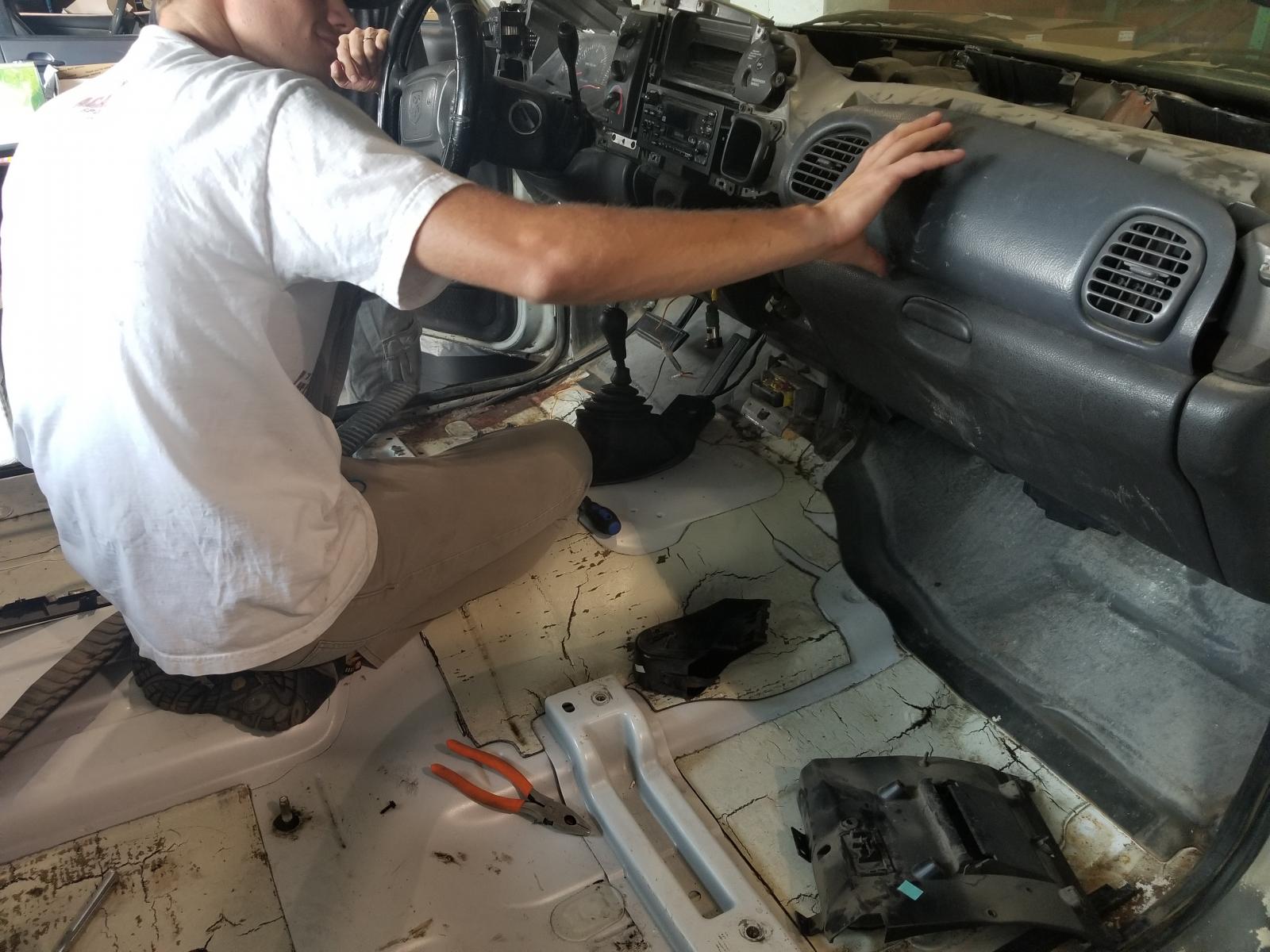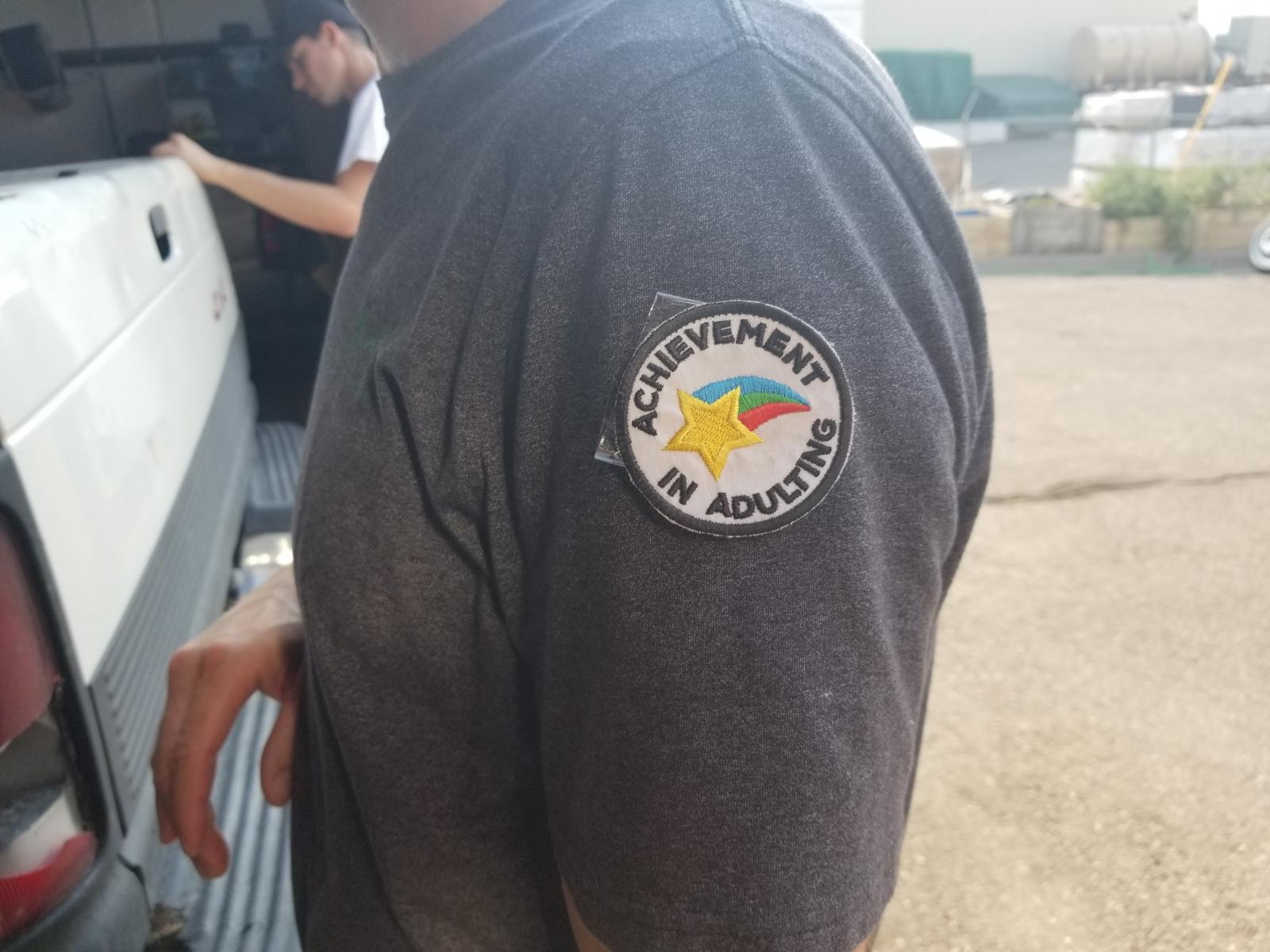
Everything posted by Quadzilla Power
-
Well the Order is in
We have stuff that I have confirmed will work on up to 2012. I am 99% sure it will work with yours as well as the changes to the interface have slowed way down in recent years. This is really just gauge only and we don't know what if anything we can change. Your Teraterm work would probably still be helpful.
-
Well the Order is in
Do you want me to send you an ViZion unit? It is basically an iQuadBT without the tuning capabilities. Plugs into the OBDII and reports all sorts of good stuff.
-
Quadzilla V2 Custom Tunes
Hey @TJ_00Cummins, I just got off the phone with you. It could be a software thing or it could be a damaged board thing. Let's hope it was just a software thing that we can fix. I would hate to have to go through another board replacement. -Thanks again,
-
Quadzilla V2 Custom Tunes
Did you jump start the truck after it sat for a while? Really any time you mess with the batteries you should disconnect the Adrenaline unit from the main harness. You can send it in for testing if you'd like.
-
Well the Order is in
So the blue one is the one that was hail damaged? I'm a little confused.
-
Well the Order is in
We have spent some time on this white truck. We found some treasures in here including this bad-boy.
-
Fuel economy on iQuad
That is different isn't it. Not losing power level says that you should have a good power and ground connection (hot part of the fuse block is fine in that case). However, it is weird that you are getting your MPG stuff reset all the time. What is the status of your MPG Offset and AVG MPG reset settings in the settings? Are they both set to ON or OFF?
-
New Tire Size found 235's to 245's
The gear ratio will only affect how it determines which gear you are in. The tire size is really the only thing that affects the speedometer readout. You will have to figure out what you need to reprogram to get the proper gear ratio and speedometer settings. Once you have whatever it is that transmits the speed corrected for the 4.10s then you can adjust for tire size in the iQuad app. I would suggest having it set for 4.10 gears and 95.7" rolling length tires then do the tire size correction in the app. That way the gear selected and the speedo are both right. Once you get the updated fuel economy stuff, you will need to correct for fuel usage. This does require a corrected speedo as described above. You don't need to know the odometer reading. You will need to fill up the truck, set the MPG offset to 100%, reset the gallons used per trip, run a tank of fuel, then fill up again. Take the actual gallons used / reported gallons used x 100 and set that as the MPG offset. This will only work if you don't use the pump tap at all, so run on level 3 or below with the V2 tuning. Once that is set properly, then you can start to trust the ECO, gallons used per trip, and the Average MPG gauge (latest version corrects what Mopar1973Man was seeing earlier). Again, you can only trust it when not running the pump tap. When you add in the pump tap all you are getting is a rough guideline at best.
-
New Tire Size found 235's to 245's
Unfortunately you have a custom build of the ADR base code. I think the MPG stuff went in after your custom build so I don't think you have that. Your custom trans temp from the Allison is different I think. I will have to see what Nick did to build yours.
-
Fuel economy on iQuad
Chris' tool reports +1 over the Adrenaline?
-
Fuel economy on iQuad
Yep, what Me78569 said. Check the power connections, it sounds like its losing power when the ignition is off. Hey Mike, Set the tire size to 95.7 for pass-through of the speedo.
-
Quadzilla Adrenaline 2nd Gen V2
Quadzilla Adrenaline 2nd Gen V2 View File ADRv2.8.4 - Based on the Hard Fuel tune. Adds the Average Miles per Gallon feature (if enabled in vehicle profile). Requires a corrected speedo and a corrected MPG offset in order to be remotely accurate. Also, you need to run on CAN bus only power settings. Using the wiretap puts this out of the realm of somewhat accurate into the realm of hand wavy accurate. Submitter Quadzilla Power Submitted 08/02/2018 Category Quadzilla Adrenaline V2 Flash Files
-
Quadzilla Adrenaline 2nd Gen V2
- 1,209 downloads
- Version 2.8.4
ADRv2.8.4 - Based on the Hard Fuel tune. Adds the Average Miles per Gallon feature (if enabled in vehicle profile). Requires a corrected speedo and a corrected MPG offset in order to be remotely accurate. Also, you need to run on CAN bus only power settings. Using the wiretap puts this out of the realm of somewhat accurate into the realm of hand wavy accurate.Free -
Fuel economy on iQuad
OK, I think I got it fixed. I had to redesign the whole thing from the ground up (just the average MPG stuff), but it should be better. I tried testing it on our truck here but the speed sensor shows roughly 1/2 of reality so it was very low. Try it out and see if this is better. http://quadzillatech.com/TunesDownloads/V2Tunes/ADR9802v2.8.4.exe
-
Fuel economy on iQuad
That's the issue right there. A low pass filter is honestly the same thing as an averager. The thing is that all fuel consumption at any given time has the same weight. For example, while @Mopar1973Man is sitting in his truck idling he is using very little fuel, but he is effectively getting 0 MPG, when he is driving down the road cruising at 27mpg, he is using more fuel but it carries the same weight as a little fuel. So if you were to take some snap shots of the fuel consumption, you would see something like this (although much more frequently and with real numbers, not stuff I'm just making up for an example) MPG - Fuel Used - Running Average - Miles Travelled 0 - 0.1 - 0 - 0 0 - 0.1 - 0 - 0 0 - 0.1 - 0 - 0 0 - 0.1 - 0 - 0 0 - 0.1 - 0 - 0 28 - 4.5 - 4.67 - 112 In this scenario, the actual MPG would be closer to 24.888 but because each sample has the same exact weight the total MPG is skewed way low (4.67). The same issue is happening when you're coasting using very little fuel but the sample carries the same weight as a sample using a lot of fuel. Well, I think I'm coming closer to figuring out how to fix the issue.
-
Fuel economy on iQuad
Sounds good. I am going to try to slow down the update rate and see if that helps things. Although, I'm not sure that it will.
-
Well the Order is in
2018 or 2019?
-
Well the Order is in
My condolences. Our hearts and prayers are with you in this your time of suffering. (Was that a little much?)
-
Fuel economy on iQuad
The gear doesn't matter directly. It only matters in the way that if you don't have your transmissions setup along with your tire size and rear end ratio then it won't give you the corrected speed which will play into the MPG. If you have that all set up then the actual gear selected shouldn't matter at all.
-
Arachnid
@trreed We don't have a published list of the tune settings for every PCM code, but for the TDE1 which is compatible with all OBS 7.3L automatics, the tune list is as follows: TDE1 - VCAB0_02 Tune List 1. Stock 2. 1100RPM High Idle 3. Whisper Mode 4. 40HP Towing 5. 50HP Towing+ 6. 65HP Daily Driving 7. Performance (roughly 100HP if your vehicle supports it) 8. BeastMode Race (up to 120HP if your vehicle supports it) There are some really cool things going on with the hydra, its got a nice digital display to tell you which tune you are on. It can hold up to 16 tunes and if you don't have all the tune settings programmed it will skip the ones that aren't. The last tune is always a no start tune for security. The drawback is the price. Right now you can get one for $325. The Arachnid comes pre-programmed and is currently less than $200 as part of our introductory price.
-
Fuel economy on iQuad
Unfortunately, running the wire-tap will throw all calculations out of wack. There is no good way to calibrate with the wire-tap so it won't really work that well for you. You would have to run on CAN bus only fueling in order to get the MPG gauges to be even remotely accurate.
-
Fuel economy on iQuad
Just some quick math, the average of all the samples of the ECO gauge gives you 32.56mpg. The average of the AVG gauge gives you 30.51. The miles/gallons used per trip is only 19.60 if you have 247.4 miles on 19.6 gallons. If you have your offset set to 125% and your offset should have been set to 150%, then your actual average MPG should be closer to 25.45 on the AVG MPG gauge, and your gallons used should be closer to 23.52 which would give your actual MPG based off the gallons used per trip and the mileage closer to 10.51 mpg which is terrible. Regardless, there is a big discrepancy between the two values. I'm trying to figure out what could account for the large discrepancy. There might be an issue in the math that I described above after the mm3/minute calculation. I guess the error could come from having it calculate too often. If we are running at 2000 RPM that gives us 6000 injections events per minute or 100 injection events per second. If we are calculating at roughly 3000 events per second there are roughly 30 calculations per injection even and only one of those really matters. If the ECM turns off the fueling or reduces it between injection events for some reason and we take those at face value and apply them it could artificially increase the MPG.
-
Fuel economy on iQuad
mm^3 per minute to Miles per Gallon First, here's a rough idea of the math for getting an "instantaneous" MPG injection amount = (125 * offset * engine load/100 + wiretapp_approximation) * RPM * 3 cylinders firing/rotation. Gives us an approximation of mm^3 per minute. (These pumps usually have a capacity of about 125 mm3 per injection event after calibration) -- This part is used for the gallons per trip. injection_in_gallons = injeciton amount (mm3/m) / 3785410.0; miles_per_minute = MPH / 60; if(mm3_gln != 0) mpg_inst = miles_per_minute / injection_in_gallons per minute; else //*case when coasting downhill* mpg_inst = 99.99 if mpg_inst > 99.99 mpg_inst = 99.99; //(max value for mpg_inst is 99.99) mpg_inst_avg = average of 32 last mpg_inst calculations. GALLONS PER TRIP: The injection_amount/minute is used to calculate injamnt/second and then that is accumulated once per second into the gallons_per_trip until it is cleared). This is done on a timer once per second. The code takes a snapshot of the "injection amount" every second and uses that to sum the gallons used per trip. Some error here but overall pretty good. Average MPG: The stuff I added for the MPG_AVG tages the mpg_inst_avg and then throws it into a low pass filter where the previous values have more weight than the incoming values and is calculated constantly (several thousand times per second), not once per second. It is basically MPG_LPF = (mpg_inst_avg * MPG_LPF_ALPHA) + (1-MPG_LPG_ALPHA) * mpg_lpf_last; The formula guarantees a unity gain by multiplying by the _ALPHA on the incoming and the (1- _ALPHA) on the last calculated value. (unity gain means the gross affect is to multiply the output value by 1). By making alpha smaller and smaller, you get more filtering. Having an _ALPHA value of .01 does filter the average but its so close to the average as to not make much difference. Having it be .001 is what you see after about 10 seconds. Having it be .0001 is what you see after about 2 minutes. Having it be .00001 is what you see after about 20 minutes and so on an so forth until you get to have the alpha being .0000000001 after about 2,000,000,000 cycles with cycles running about 3000 per second. So roughly 7 or 8 days worth of continuous driving. With each step in the cycles you get slower and slower updates to the average because the input has less and less weight on the output. It still matters and it will approach the final value asymptotically but the change is very slow.
-
Fuel economy on iQuad
I would go ahead and reset everything and give the corrected offset. Then from there run a few tanks of fuel and do the tests that way.
-
Fuel economy on iQuad
So right now, the AVG MPG is literally just an "average" of the "ECO" gauge. Its seriously just a low pass filtered version of the "ECO" gauge that increases in its filtering over time. After a set number of samples, it will increase in the filtering. Basically, at first, its very reactive to how much fuel you're using, then a switch gets thrown and it becomes less reactive. What that means is that if you were coasting downhill when the switch is thrown you will start out unusually high and it will take a lot more time for it to come back down to your actual fuel mileage. To complicate things, the switch is thrown multiple times increasing the level of filtering every time. Now, I can base the MPG number off of the gallons used per trip, but I'm not sure that I can get a reading on the odometer through the J1939 bus. I will have to look into that. If everyone wants them to correlate that way I can change the AVG to just be the gallons used / distanced traveled to get an MPG for that trip. That way those two will always correlate, but I don't think that's what you want otherwise the avg MPG will always be reset with the reset of the gallons used per trip. I am not sure that having those gauges not correlate constitutes a "serious error" but I can see the desire to have them correlate. Let's take @Mopar1973Man's example. First, he has an usually high AVG MPG because he drove 100 mile and used an estimated 5 gallons of fuel to do that. Then he resets his stuff and lets his truck idle for a while, in the meantime, the AVG MPG gauge goes through probably two transitions of filtering slowing it down, then it takes a while for the gauge to react after hes moving so its still on the low side of what his calculations show it should be when he finishes his 25 mile drive. Lets further complicate that with someone who doesn't reset the AVG MPG for several tanks of fuel which then puts the LPF in it highest filtering point yet (so high that I had to use a special data structure to account for the newer inputs in order for them to affect the output at all). Say he resets his gallons used per trip then drives up hill for a while using more fuel than average. At the end of the trip, he will say, "I've used way more fuel than my AVG says that I do". He then fills up again and resets his gallons used per trip, then returns home going downhill the whole way. When he gets home he will say, "This time I've used way less fuel than the AVG says I did". That's because the AVG is taking his average fuel usage over a very long period of time rather than just on those two trips. In this same scenario, if the AVG is reset every time with the gallons used per trip it should correlate better but it will also depend on the length of the trip. If it is short, the first few minutes will weigh much heavier than the last few minutes just due to how the filter changes over time. It should correlate much better over a longer trip, but the first few minutes after the AVG has been reset will still weigh heavier than the rest. In order to really check to see if the AVG is erroring on the high side or low side we need a much longer time period between resets and checks. I think it would be better to burn through a few tanks of fuel and then try to correlate the gallons used for all the trips versus the AVG that was calculated. If there is a large error, the we will have to make appropriate adjustments and find out where the error comes from. @Mopar1973Man's data gives the error in opposite directions so it makes it hard to try and find where the error comes from in that data. In summary, can you extend the tests? Can you take the average over several tanks of fuel without resetting the AVG MPG or Gallons Used per Trip and keep track of the odometer readings? Can you see if the discrepancies start to go away and the values start to merge? If the values don't start to merge then we will have to make changes.








